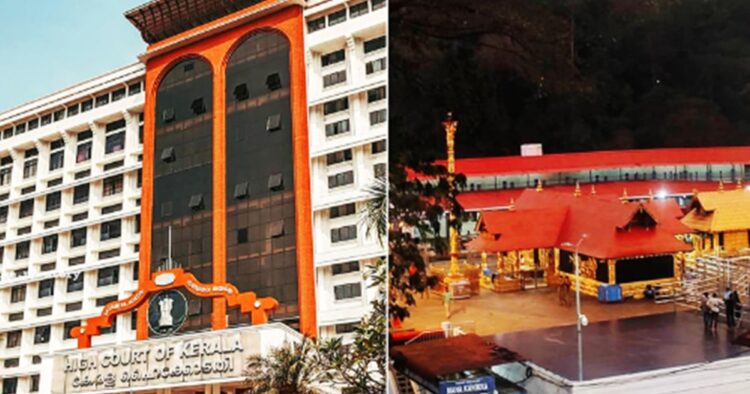It resisted that restricting the selection of the high priest post to persons from the Malayala Brahmin community alone was violative of rights guaranteed by the Constitution of India. The Court dismissed the writ petitions on the ground that they lacked proper pleadings.
“There is a total lack of pleadings and grounds raised in the writ petitions. Though the counsel for the petitioners addressed arguments with respect to the provisions of Articles 25 and 26 of the Constitution of India, the challenge made in these writ petitions is regarding the selection of Melshanthis in Sabarimala and Malikapuram temples for the year 1193 ME and 1197 ME. In the absence of proper pleadings on Articles 25 and 26 we are of the view that there is no need to keep these writ petitions open for the larger bench of the Supreme Court to decide on the issue. However we make it clear that the contentions of both sides in this respect are kept open to be raised in an appropriate proceedings at an appropriate time,” the Court said.
Travancore Devaswom Board, through a notification dated May 27, 2021, had called for applications to the post of Santhikkaran at Sabarimala Dharmasastha Temple and Malikappuram Temple, from among the Malayala Brahmin community members alone.
One of the pleas before the Court, filed in July 2021, through advocate BG Harindranath, challenged this notification on the ground that it is in total disregard to Supreme Court judgments and Articles 14, 15, 16, 17, and 21 of the Constitution of India.
‘The appointment to the post of Melshanthi has been held to be a secular act and that it ought not to have been confined to one particular community, especially in an institution administered by the Travancore Devaswom Board, which is fully controlled by the Government of Kerala’, said the plea.
It was further contended that Articles 25 (freedom of religion) and 26 (freedom to manage religious affairs) cannot be said to be infringed in appointing persons other than Brahmins to the post, as long as the appointment is from among persons who are fully qualified and trained in their duties, irrespective of their caste.















Comments